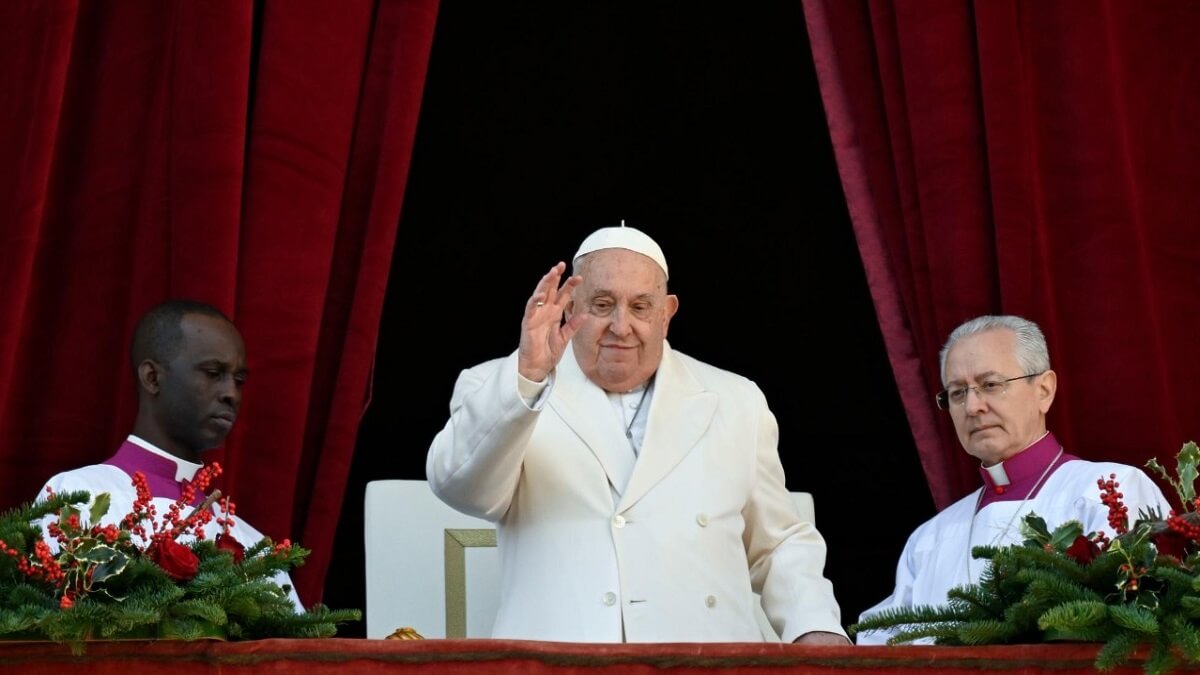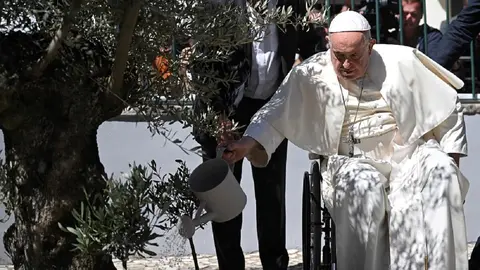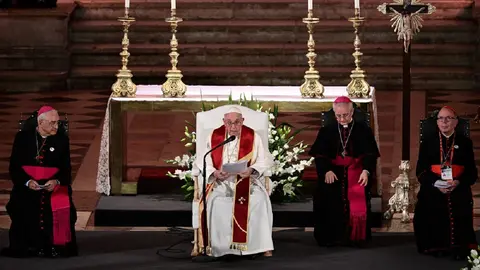Pope Francis, symbol of the fight for social justice, dies

Pope Francis has died at the age of 88 at his residence in Santa Marta, near St. Peter's Basilica in Rome, according to Cardinal Kevin Joseph Farrell, the Vatican chamberlain, and as reported by the Vatican in an official statement.
‘A short while ago, His Eminence Cardinal Farrell announced with sadness the death of Pope Francis with these words: ‘Dear brothers and sisters, with deep sorrow I must announce the death of our Holy Father Francis. At 7:35 this morning, the Bishop of Rome, Francis, returned to the house of the Father. His entire life was dedicated to the service of the Lord and his Church. He taught us to live the values of the Gospel with fidelity, courage and universal love, especially in favour of the poorest and most marginalised. With immense gratitude for his example as a true disciple of the Lord Jesus, we entrust the soul of Pope Francis to the infinite merciful love of the Triune God,’ according to the official statement from the Vatican.
Pope Francis suffered from significant health and respiratory problems due to his advanced age. Jorge Mario Bergoglio was discharged from hospital on 23 March after a long 37-day stay due to severe pneumonia. He appeared in public for the last time on Sunday in St. Peter's Square to give the traditional ‘Urbi et orbi’ blessing. His lack of strength and health problems were evident, and he limited himself to wishing all the faithful a happy Easter before taking a ride in the ‘popemobile’ in what was his last public appearance. His last known important meeting was with the Vice President of the United States, J. D. Vance, whom he received in a private audience despite deep differences with the conservative US administration of Donald Trump, which is far removed from the progressivism and protection of the disadvantaged professed by Pope Francis.
After 12 years as pope, Argentine Jorge Mario Bergoglio has died at an advanced age after a term marked by social reforms, left-leaning views and the defence of the poor and disadvantaged, which represented a major political shift within the Catholic Church.
Jorge Mario Bergoglio became the first Pope from the Americas, marking a milestone in March 2013 when white smoke rose and he was elected to the position after serving as Archbishop of Buenos Aires.
Pope Francis' career has been marked by his support for and closeness to the poorest and most disadvantaged, which is very much in keeping with his training as a Jesuit in the Society of Jesus, which he joined as a novice in March 1958.

Due to his past, the election of Jorge Mario Bergoglio as Pope signified a revolutionary change towards progress, given his left-leaning tendencies and his defence of the most disadvantaged against those in power.
‘My people are poor and I am one of them,’ Jorge Mario Bergoglio said on more than one occasion. He has always recommended mercy, apostolic courage and open doors to all to his priests. The worst thing that can happen in the Church, he explained in some circumstances, “is what the French theologian Henri de Lubac calls spiritual worldliness,” which means ’putting oneself at the centre.’
For Pope Francis, social justice was very important, and he recommended returning to the catechism and emphasising the ten commandments of Christianity. For him, it was essential to follow Christ, which meant respecting the dignity of the person and not abusing or humiliating anyone.
Jorge Mario Bergoglio belonged to a humble Argentine family of Italian origin and lived a modest life. He graduated as a chemical technician and soon took the path of the priesthood, entering the Society of Jesus in 1958. He pursued his ecclesiastical career until becoming Archbishop of Buenos Aires in 1998. The most notable moments of his career came with his appointment as Archbishop of Buenos Aires and, of course, when he was named Pope Francis I. He replaced Pope Benedict XVI, who left office amid serious problems facing the Catholic Church, such as cases of sexual abuse of minors within the Church and the controversy surrounding the Bank of the Holy See. These were important and relevant problems because it should be remembered that the Vatican is an official state like any other recognised country.
Jorge Mario Bergoglio arrived precisely to reform the institution and change several things within the Catholic Church due to his progressive nature. His actions were marked by his energetic, revolutionary and rebellious character, which led him to undertake several reforms in the Catholic Church, although some remained unfinished. His social struggle in favour of the poor and most disadvantaged carried greater weight, and he harshly criticised conservative and more capitalist or neoliberal political systems for not putting people at the centre and prioritising political or economic interests.
His stance led to clashes with more conservative sectors of the Church and even to internal struggles over issues of importance to the ecclesiastical institution, such as sexual freedom and the role of women in the Church. In fact, Pope Francis was even labelled a populist and representative of the extreme left.
However, other voices criticised Pope Francis for not going far enough with the reforms that needed to be carried out in the Catholic Church in order to address the social changes and problems of the current times.










